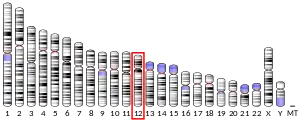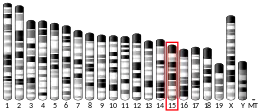| KRT83 | |||||||||||||||||||||||||||||||||||||||||||||||||||
|---|---|---|---|---|---|---|---|---|---|---|---|---|---|---|---|---|---|---|---|---|---|---|---|---|---|---|---|---|---|---|---|---|---|---|---|---|---|---|---|---|---|---|---|---|---|---|---|---|---|---|---|
| Identifiers | |||||||||||||||||||||||||||||||||||||||||||||||||||
| Aliases | KRT83, HB3, Hb-3, KRTHB3, keratin 83, MNLIX, EKVP5 | ||||||||||||||||||||||||||||||||||||||||||||||||||
| External IDs | OMIM: 602765 MGI: 3690448 HomoloGene: 68248 GeneCards: KRT83 | ||||||||||||||||||||||||||||||||||||||||||||||||||
| |||||||||||||||||||||||||||||||||||||||||||||||||||
| |||||||||||||||||||||||||||||||||||||||||||||||||||
| |||||||||||||||||||||||||||||||||||||||||||||||||||
| |||||||||||||||||||||||||||||||||||||||||||||||||||
| |||||||||||||||||||||||||||||||||||||||||||||||||||
| Wikidata | |||||||||||||||||||||||||||||||||||||||||||||||||||
| |||||||||||||||||||||||||||||||||||||||||||||||||||
Keratin 83, also known as KRT83, is a protein which humans is encoded by the KRT83 gene.[5][6]
Function
The protein encoded by this gene is a member of the keratin gene family. As a type II hair keratin, it is a basic protein which heterodimerizes with type I keratins to form hair and nails. The type II hair keratins are clustered in a region of chromosome 12q13 and are grouped into two distinct subfamilies based on structure similarity. One subfamily, consisting of KRTHB1 (KRT81), KRTHB3 (KRT83, this protein), and KRTHB6 (KRT86), is highly related. The other less-related subfamily includes KRTHB2 (KRT82), KRTHB4 (KRT84), and KRTHB5 (KRT85). All hair keratins are expressed in the hair follicle; this hair keratin, as well as KRTHB1 and KRTHB6, is found primarily in the hair cortex.[7]
Clinical significance
Mutations in the KRT83 gene have been associated with monilethrix.[8]
References
- 1 2 3 GRCh38: Ensembl release 89: ENSG00000170523 - Ensembl, May 2017
- 1 2 3 GRCm38: Ensembl release 89: ENSMUSG00000067613 - Ensembl, May 2017
- ↑ "Human PubMed Reference:". National Center for Biotechnology Information, U.S. National Library of Medicine.
- ↑ "Mouse PubMed Reference:". National Center for Biotechnology Information, U.S. National Library of Medicine.
- ↑ Rogers MA, Langbein L, Praetzel S, Moll I, Krieg T, Winter H, Schweizer J (February 1997). "Sequences and differential expression of three novel human type-II hair keratins". Differentiation. 61 (3): 187–94. doi:10.1046/j.1432-0436.1997.6130187.x. PMID 9084137. Archived from the original on 2013-01-05.
- ↑ Schweizer J, Bowden PE, Coulombe PA, Langbein L, Lane EB, Magin TM, Maltais L, Omary MB, Parry DA, Rogers MA, Wright MW (July 2006). "New consensus nomenclature for mammalian keratins". J. Cell Biol. 174 (2): 169–74. doi:10.1083/jcb.200603161. PMC 2064177. PMID 16831889.
- ↑ "Entrez Gene: KRT83 keratin 83".
- ↑ van Steensel MA, Steijlen PM, Bladergroen RS, Vermeer M, van Geel M (March 2005). "A missense mutation in the type II hair keratin hHb3 is associated with monilethrix". J. Med. Genet. 42 (3): e19. doi:10.1136/jmg.2004.021030. PMC 1736019. PMID 15744029.
Further reading
- Langbein L, Rogers MA, Winter H, et al. (2001). "The catalog of human hair keratins. II. Expression of the six type II members in the hair follicle and the combined catalog of human type I and II keratins". J. Biol. Chem. 276 (37): 35123–32. doi:10.1074/jbc.M103305200. PMID 11445569.
- Langbein L, Schweizer J (2005). "Keratins of the human hair follicle". Int. Rev. Cytol. International Review of Cytology. 243: 1–78. doi:10.1016/S0074-7696(05)43001-6. ISBN 9780123646477. PMID 15797458.
- Strausberg RL, Feingold EA, Grouse LH, et al. (2002). "Generation and initial analysis of more than 15,000 full-length human and mouse cDNA sequences". Proc. Natl. Acad. Sci. U.S.A. 99 (26): 16899–903. Bibcode:2002PNAS...9916899M. doi:10.1073/pnas.242603899. PMC 139241. PMID 12477932.
- Rogers MA, Winter H, Langbein L, et al. (2000). "Characterization of a 300 kbp region of human DNA containing the type II hair keratin gene domain". J. Invest. Dermatol. 114 (3): 464–72. doi:10.1046/j.1523-1747.2000.00910.x. PMID 10692104.
This article incorporates text from the United States National Library of Medicine, which is in the public domain.



